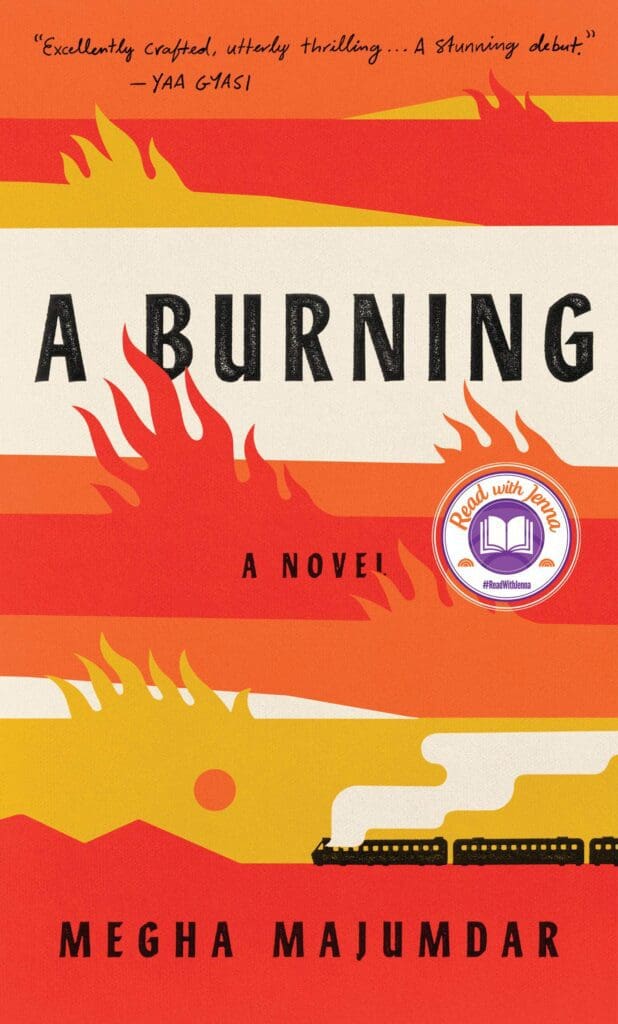Megha Majumdar’s first novel, A Burning (304 pages; Knopf), is one of the most invigorating debuts in recent memory. The Kolkata-born Majumdar weaves the story of three individuals living in contemporary India whose fates are at the whim of the powers that be. Jivan, a young, driven Muslim girl who grew up in the Kolabagan slum, aspires to join the middle class. After she witnesses a terrorist attack at a train station that kills more than a hundred people, she posts a Facebook comment critical of the local police response. “If the police didn’t help ordinary people like you and me, if the police watched them die, doesn’t that mean,” she poses, “that the government is also a terrorist?”
A few days later, Jivan is dragged from her bed in the middle of the night and arrested as an alleged accomplice in the attack. She will spend the rest of the novel in prison, hoping for her release. This episodic novel also follows PT Sir, Jivan’s former physical education instructor, whose rise to political power in the right-wing Jana Kalyan party will depend on his willingness to give false testimony and implicate Jivan in the attack; and Lovely, who is an aspiring Bollywood actress and a “hijra,” an ambiguous term meaning intersex or transgender, who performs blessings in the streets for money. Lovely is also Jivan’s English tutee, and the one person who can prove Jivan’s alibi, being the recipient of the suspicious package Jivan was seen holding at the site of the attack. When Lovely’s career begins to take off after a clip of her performance in class goes viral on WhatsApp, she learns that sacrifice comes with fame, and between her and Jivan, only one can have freedom.
Majumdar brings a grave immediacy to the novel as her characters face the often fatal consequences of negligence and complacency. There are also several chapter-long “interludes”—ranging from a police officer recently fired for use of excessive force and two boys denied entry into a mall because of caste discrimination, to an account of several men murdering a Muslim family for allegedly killing their village’s mother cow for meat—that add to the novel’s sense of urgency.
Through it all, Lovely’s exuberance and buoyancy bring a redeeming joyfulness to a story where the individual is situated against society. Her narration is written in the present progressive tense, which translates her Bengali dialect into English and further synchronizes the language with the ongoing present:
Even a future movie star is having to make money. One morning my sisters and I are spraying rose water in our armpits, braiding our hair, putting bangles on our arms, and together we are going to bless a newborn. The general public is believing that we hijras are having a special telephone line to god. So if we bless, it is like a blessing straight from god. At the door of the happy family, I am rattling the lock thuck thuck thuck.
By the end of her novel, Majumdar is swift and certain in her denunciation of inequality and capitalism, the insidious carelessness in holding power, and the criminal justice system in India. A Burning is like a sparking power line, releasing jolts of bright light, humor and compassion into a world plagued with systemic problems and darkness.

